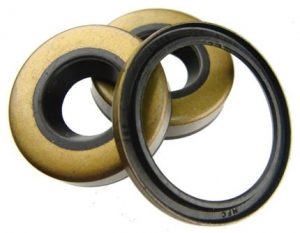
Not all seals are made of a single piece of material. Some of them are made of multiple pieces of material that are bonded together. Vulcanized seals, for instance, are defined by their fused construction. They are made of multiple pieces of material, which are fused together with heat and pressure. Exposure to heat and pressure allows for an ultra-strong bond, thus forming a seal. What are the benefits of vulcanized seals exactly?
Water Resistance
Vulcanized seals are resistant to water. Neither water nor any other liquids can pass through them. At the same time, vulcanized seals are non-absorbent. Even when directly exposed to water, vulcanized seals won’t absorb it. They’ll seal the surfaces with which they are used to promote a dry environment.
Shape Retention
Another benefit of vulcanized seals is shape retention. They can still expand when exposed to hot liquids. With that said, vulcanized seals will revert back to their original shape after they have cooled. Vulcanized seals offer excellent shape retention properties. They’ll expand when hot — this creates a stronger seal — and they’ll contract as they cool.
Corrosion-Proof
You don’t have to worry about corrosion eating through vulcanized seals. Corrosion, such as rust, only occurs with iron and iron alloys. Vulcanized seals don’t contain any iron. Rather, they are made of synthetic elastic materials like rubber. And without any iron, vulcanized seals are corrosion-proof. They won’t rust or otherwise degrade from corrosion, thereby allowing for many years of continuous use.
Resistant to Solvents
Solvents are a concern for certain types of seals. With their ability to dissolve and break down materials, they can degrade to a seal to the point where it’s no longer able to prevent water, liquids or gases from leaking. Fortunately, vulcanized seals are resistant to solvents.
Inexpensive
Contrary to common belief, vulcanized seals aren’t expensive. They are actually less expensive than many other types of seals. The low cost of vulcanized seals can be attributed to their vulcanization process. Vulcanization is a low-cost process that can be automated. As a result, seals and other parts made of vulcanized material are typically inexpensive.
In Conclusion
Vulcanized seals are defined by their production process. As the name suggests, they produced via vulcanization. They are made of an elastic synthetic material that’s vulcanized by exposure to heat and pressure. This process allows for two or more pieces — such as the front and back ends — to fuse together.
